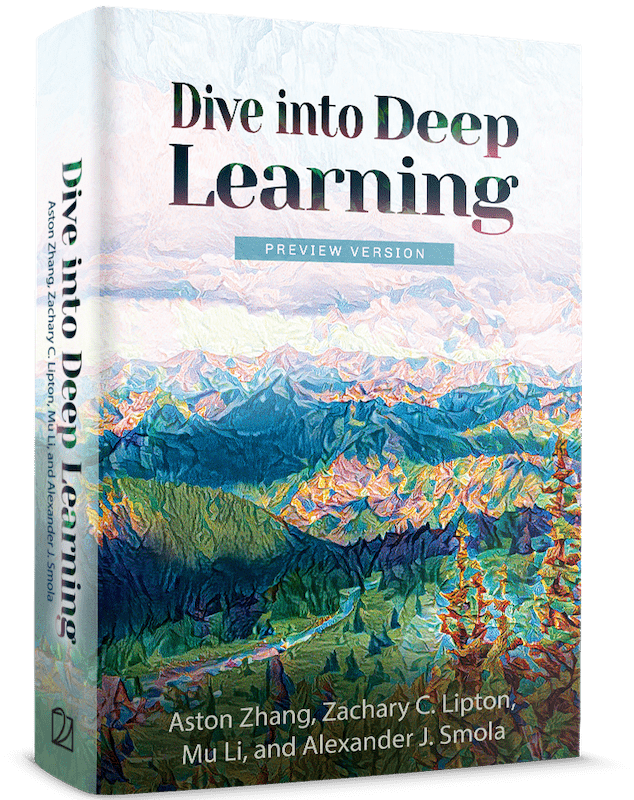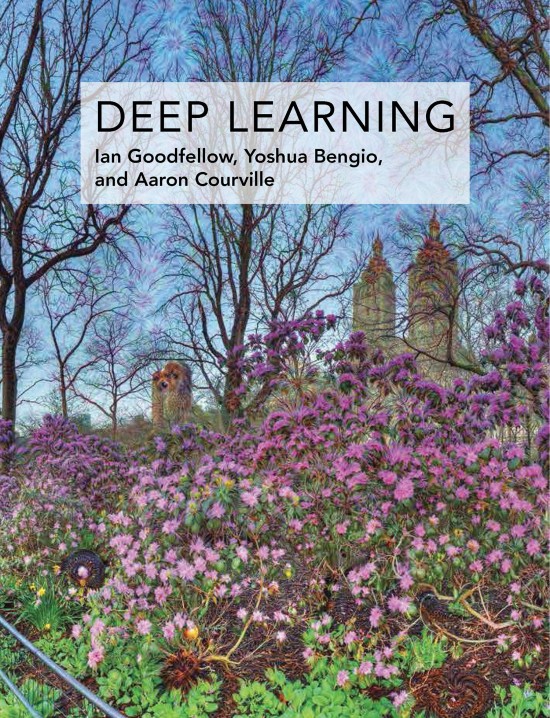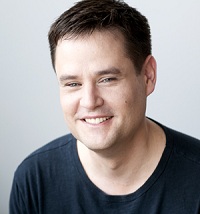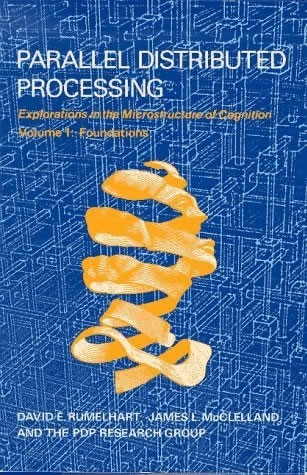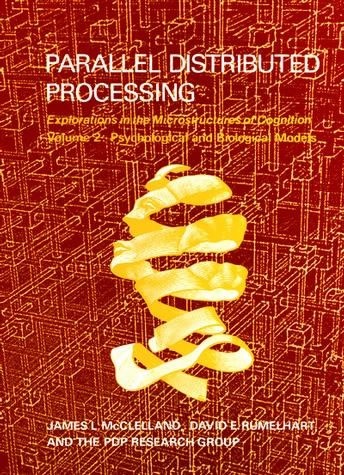Schedule of Lectures
You can watch the recorded lectures on Mediatech.| Lecture | Date | Topics | Slides and Video | Additional Materials | Quiz |
|---|---|---|---|---|---|
| 0 | - |
|
Slides (*.pdf) Video (YT) |
Quiz 0 | |
| 1 | Tuesday Jan 18 |
|
Slides (*.pdf) Video (YT) Video (MT) |
The New Connectionism (1988)
On Alan Turing's Anticipation of Connectionism |
Quiz 1 | Quiz
| 2 | Thursday Jan 20 |
|
Slides (*.pdf) Video (MT) Video (YT) |
Shannon (1949) Boolean Circuits |
|
| 3 | Tuesday Jan 25 |
|
Slides (*.pdf) Video (YT) Video (MT) |
Widrow and Lehr (1992) Adaline and Madaline Convergence of perceptron algorithm Threshold Logic TC(Complexity) AC(Complexity) |
Quiz 2 |
| 4 | Thursday Jan 27 |
|
Slides (*.pdf) Video (YT) Video (MT) |
Werbos
(1990) Rumelhart, Hinton and Williams (1986) |
|
| 5 | Tuesday Feb 1 |
|
Slides (*.pdf) Part1 Video (YT) Part2 Video (YT) Video (MT) |
Werbos
(1990) Rumelhart, Hinton and Williams (1986) |
Quiz 3 |
| 6 | Thursday Feb 3 |
|
Slides (*.pdf) Video (YT) Video (MT) |
Backprop fails to separate, where
perceptrons succeed, Brady et al. (1989) Why Momentum Really Works |
|
| 7 | Tuesday Feb 8 |
|
Slides (*.pdf) Video (YT) |
Momentum,
Polyak (1964) Nestorov (1983) Derivatives and Influences |
Quiz 4 |
| 8 | Thursday Feb 10 |
|
Slides (*.pdf) Video1 (YT) Video2 (YT) Video (MT) |
Derivatives and Influence Diagrams ADAGRAD, Duchi, Hazan and Singer (2011) Adam: A method for stochastic optimization, Kingma and Ba (2014) |
|
| 9 | Tuesday Feb 15 |
|
Slides (*.pdf) Video (YT) Video (MT) |
Quiz 5 | |
| 10 | Thursday Feb 17 |
|
Slides (*.pdf) Video (YT) Video (MT) |
||
| 11 | Tuesday Feb 22 |
|
Slides (*.pdf) Video (YT) Video (MT) |
CNN Explainer | Quiz 6 |
| 12 | Thursday Feb 24 |
|
Slides (*.pdf) Video (YT) Video (MT) |
||
| 13 | Tuesday March 1 |
|
Slides (*.pdf) Video (YT) Video (MT) |
Fahlman
and Lebiere (1990) How to compute a derivative, extra help for HW3P1 (*.pptx) |
Quiz 7 |
| 14 | Thursday March 3 |
|
Slides (*.pdf) Video (YT) Video (MT) |
Bidirectional Recurrent Neural Networks | |
| - | Tuesday March 8 |
|
Quiz 8 | ||
| - | Thursday March 10 |
| |||
| 15 | Tuesday March 15 |
|
Slides (*.pdf) Video (YT) Video (MT) |
LSTM | Quiz 9 |
| 16 | Thursday March 17 |
|
Slides (*.pdf) Video (YT) |
||
| 17 | Tuesday March 22 |
|
Slides (*.pdf) Video1 (YT) Video2 (YT) Video (MT) |
Labelling Unsegmented Sequence Data with Recurrent Neural Networks | Quiz 10 |
| 18 | Thursday March 24 |
|
Slides (*.pdf) Video (YT) |
||
| 19 | Tuesday March 29 |
|
Slides (*.pdf) Video (YT) |
Attention Is All You
Need A comprehensive Survey on Graph Neural Networks |
Quiz 11 |
| 20 | Thursday March 31 |
|
Slides (*.pdf) Video (YT) |
||
| 21 | Tuesday April 5 |
|
Slides (*.pdf) Video (YT) |
Tutorial on VAEs (Doersch) Autoencoding variational Bayes (Kingma) |
Quiz 12 |
| - | Thursday April 7 |
|
|||
| 22 | Tuesday April 12 |
|
Slides (*.pdf) Video (YT) |
Quiz 13 | |
| 23 | Thursday April 14 |
|
Video (YT) Slides (*.pdf) Slides (*.pptx) |
||
| 24 | Tuesday April 19 |
|
Video (YT) |
Quiz 14 | |
| 25 | Tuesday April 19 |
|
Slides (*.pptx) Video (YT) |
||
| 26 | Tuesday April 26 |
|
Slides (*.pdf) Video (YT) | No Quiz | |
| 27 | Thursday April 28 |
|
Slides (*.pdf) Video (YT) |
Schedule of Recitations
| Recitation | Date | Topics | Materials | Videos | Instructor |
|---|---|---|---|---|---|
| 0A | Jan 10, 2022 | Python & OOP Fundamentals | Chaoran, Roshan | ||
| 0B | Jan 10, 2022 | Fundamentals of NumPy | Notebook (*.zip) | Rucha, Shreyas | |
| 0C | Jan 10, 2022 | PyTorch Tensor Fundamentals | Notebook + Cheatsheet (*.zip) | Lavanya, Aparajith | |
| 0D | Jan 10, 2022 | Dataset & DataLoaders | Notebook + Slides (*.zip) |
Video (YT)
|
Fuyu, Soumya |
| 0E | Jan 10, 2022 | Introduction to Google Colab |
Video
(YT)
|
Ameya, Rucha | |
| 0F | Jan 10, 2022 | AWS Fundamentals |
Video (YT):
1,
2,
3,
4 |
Roshan, Ameya | |
| 0G | Jan 10, 2022 | Debugging, Monitoring | Rukayat, Brad | ||
| 0H | Jan 10, 2022 | Remote Notebooks | Notebook + Markdown (*.zip) | Zhe, Manasi | |
| 0I | Jan 10, 2022 | What to do if you're struggling | Slides (*.pdf) |
Video (YT)
|
Brad, Urvil |
| 0J | Due: Jan. 23 | Data Preprocessing | Chaoran, Diksha | ||
| 1 | Jan 21, 2022 | Your first MLP Code | Slides (*.zip) |
|
Lavanya, Roshan, Amelia |
| 2 | Jan 28, 2022 | Optimizing the Networks, Ensembles | Notebook + Slides (*.zip) |
Video (YT) |
Rucha, Urvil |
| HW1 Bootcamp | Jan 26, 2022 | How to get started with HW1 |
Video (YT)
|
Bradley, Wenwen | |
| 3 | Feb 4, 2022 | Computing Derivatives & Autograd | Slides (*.pdf) |
Video (YT)
|
Chaoran, John |
| 4 | Feb 11, 2022 | Hyperparameters Tuning | Slides + Notebook (*.zip) |
Video (YT) |
Brad, Urvil, Ruoyu |
| 5 | Feb 18, 2022 | CNN: Basics & Backprop | Slides + Notebook (*.zip) |
Video (YT)
|
Aparajith, Amelia, Manasi |
| HW2 Bootcamp | Feb 24, 2022 | How to get started with HW2 |
Slides (p2) (*.pdf) MobileNet code (*.py) |
Video (YT)
|
David, Manasi, Soumya |
| 6 | Feb 25, 2022 | CNNs: Classification & Verification | Slides(*.pdf) |
Video (YT) |
Manasi, Iffanice |
| 7 | Mar 4, 2022 | Paper Writing Workshop | Slides (*.zip) |
Video (YT)
|
Rukayat, David |
| 8 | Mar 11, 2022 | RNN Basics (Pre-recorded) |
Slides (*.pdf) Code (*.zip) |
Video (YT)
|
Aparajith, Soumya, Shreyas, Lavanya |
| 9 | Mar 18, 2022 | CTC, Beam Search | Slides (*.pdf) |
Video (YT)
|
Ameya, Soumya |
| HW3 Bootcamp | Mar 24, 2022 | How to get started with HW3 |
Slides (p1) (*.pdf) Slides (p2) (*.pdf) |
Video (YT) |
Aparajith, Diksha |
| 10 | Mar 25, 2022 | Attention, MT, LAS | Slides (*.zip) |
Video (YT) |
Ameya, Lavanya |
| 11 | Apr 1, 2022 | Transformers | Slides+Notebook(*.zip) |
Video (YT) |
Ameya, Zhe |
| HW4 Bootcamp | April 6, 2022 | How to get started with HW4 |
Notebook (*.ipynb) Notebook (*.ipynb) |
Video (YT) |
Ameya, Zhe | 12 | Apr 15, 2022 | Generative Adversarial Networks (GANs) + HW5 Bootcamp | Slides (*.ipynb) |
Video (YT) |
Zhe, Fuyu |
| 13 | Apr 22, 2022 | Graph Neural Networks | John | ||
| 14 | Pre-recorded | YOLO | Chaoran, Manasi |
Assignments and Quizzes
∑ Ongoing, ∏ Upcoming
| Assignment | Release Date | Due Date | Related Materials / Links |
|---|---|---|---|
| HW0p1 | Winter Break | Jan 23rd, 2022 11:59 PM EST |
Autolab,
Handout
(see recitation 0s) |
| HW0p2 | Winter Break | Jan 23rd, 2022 11:59 PM EST |
Autolab,
Handout
(see recitation 0s) |
| HW1p1 | Jan 23rd, 2022 | Feb 17th, 2022 11:59 PM EST |
Autolab,
Writeup (pdf),
Handout (.tar) Computing Derivatives (pdf) |
| HW1p2 | Jan 23rd, 2022 | Early Submission: Jan 31th, 2022 11:59 PM EST |
Kaggle,
Writeup (pdf),
Canvas Quiz |
| Final: Feb 17th, 2022 11:59 PM EST |
|||
| HW1 Bonus | Jan 31st, 2022 | Mar 17th, 2022 11:59 PM EST |
Autolab,
Writeup (pdf),
Handout (.tar) |
| Project Proposal | - | TBA | Canvas Submission (TBA) |
| HW2p1 | Feb 17th, 2022 | Mar 17th, 2022 11:59 PM EST |
Autolab, Writeup, Handout (.tar) |
| HW2p2 | Feb 17th, 2022 | Early Submission: Feb 25th, 2022 11:59 PM EST |
Face Classification: Kaggle,
Face Verification: Kaggle, Writeup (*.pdf) |
| Final: Mar 17th, 2022 11:59 PM EST |
|||
| Project Midterm Report | - | TBA | Canvas Submission (TBA) |
| HW3p1 | Mar 17th, 2022 | Apr 7th, 2022 11:59 PM EST |
Autolab, handout (*.zip), Writeup (*.pdf) |
| HW3p2 | Mar 17th, 2022 | Early Submission: Mar 26th, 2022 11:59 PM EST |
Kaggle, Writeup (*.pdf), Canvas Quiz |
| Final: Apr 7th, 2022 11:59 PM EST |
|||
| HW4p1 | Apr 4th, 2022 | Apr 28th, 2022 11:59 PM EST |
Writeup(*.pdf), Handout(*.zip) |
| HW4p2 | Apr 5th, 2022 | Early Submission (Bonus): Apr 16th, 2022 11:59 PM EST |
Writeup(*pdf), Kaggle |
| Final: Apr 28th, 2022 11:59 PM EST |
|||
| Final Project Video Presentation & Preiliminary Project Report | Apr 28th, 2022 |
May 2nd, 2022 5:59 PM EST |
Preliminary Report: Canvas Submission (TBA) |
| Project Peer reviews |
May 3rd, 2022 |
May 4th, 2022 11:59 PM EST |
- |
| Final Project Report Submission | - |
May 6th, 2022 11:59 PM EST |
Canvas Submission (TBA) |
Documentation and Tools
Textbooks
This is a selection of optional textbooks you may find useful
